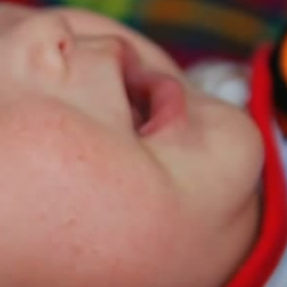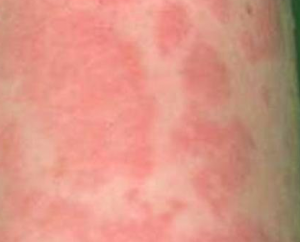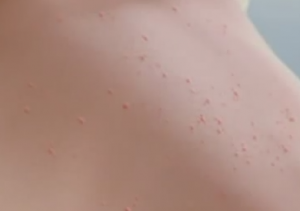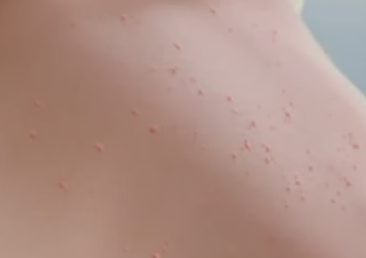Heat rash which is also known as prickly rash may manifest in form of tiny red bumps that normally occur in newborn babies. This happens because their sweat glands are not fully developed. Therefore, when the baby sweats too much, sweat gets trapped in their pores since they have tiny pores. Heat rash is very uncomfortable and might keep your baby up crying and feeling cranky especially when temperatures are high.
The rash can be seen in parts of your baby’s body where it is always covered. This includes buttocks, chest, stomach, neck, and crotch. In case, you constantly cover your baby’s head, rashes will appear on her forehead. Fortunately for parents, heat rash in newborn doesn’t necessarily require medical attention if managed well.
Causes
Hot and humid weather is primarily the main factor associated with the cause of heat rash in babies. During such weather conditions, your baby sweats a lot and since her pores are underdeveloped they clog up. The accumulated sweat on the baby’s blocked pores causes the skin to rise, developing into heat rash.
However, heat rash can also be seen during winter because the baby is covered in too many layers of clothing. Heat rash also appears when your baby is having a fever.
Symptoms of heat rash in a newborn
You will know if your child has got heat rash if –
- Small pinkish-red or clear blisters appear on her face, neck, chest, and in the skin folds especially in the diaper area.
- There is itching and tingling
- The baby experiences prickly pain— this is restlessness and crankiness due to discomfort since your baby is unable to speak out how they feel.
If infected mostly by fungal yeast caused by scratching, these rashes might turn into blisters and start oozing pus, which is a very painful and uncomfortable thing for a small baby to go through.
Treatment
If your baby is showing signs of heat rash, you should loosen or remove her clothing as it allows her to cool the body. You should also dress your baby in cotton clothes as synthetic fabrics such as polyester only trap heat.
Use ointment and baby powder or cream on the area affected by the rash that is prescribed by your pediatrician. Buying over the counter medications is not advisable as it may worsen your baby’s condition.
If you experience heat waves at home, installing a fan in your baby’s room would be helpful but don’t place it too directly to her. After a bath or when your baby is sweating, air drying is more advisable instead of using a towel, as it might increase the itchiness.
Trim your baby’s fingernails so as to avoid scratching when she feels itchy. Bathe the baby with lukewarm water since it will help soothe the itching.
Prevention
There are a number of measures you can take so as to avoid further spread of heat rash on your baby. Dry all your baby’s skin folds after each bath. Avoid bundling your baby in too much clothing. Poor ventilation will only aid in excess sweating and thus the rash. When the weather is warm, you should opt to dress your baby in light clothing.
Avoid spending too much time outside during hot weather and if you must, try carrying an umbrella. Refrain from wearing clothes with material that might irritate baby’s skin when holding her. Keep your baby’s sleeping in a well ventilated area.
Never leave your baby in a car by themselves and use conditioning when driving in hot days. Constantly keep checking on your baby to see if she is over heating or after loosening her clothing, see if she has cooled down because he might need to be warm again.
Heat Rash in Babies – Pictures



Signs that heat rash in your newborn need medical attention
Most of the times, heat rash is not a serious indication that you should visit a doctor. However, less often than not, the rash can become a problem. Here are some of the warning signs;
- If your baby develops a fever
- If the rash takes more than 3 days to go away
- If the blisters are filled with pus
Even though people of all ages can be affected by heat rash, babies are more prone. You should take proper care of your child by checking on them regularly as they don’t have the ability to speak or take care of themselves.
Heat rash can be a very uncomfortable and cause you and your baby to have sleepless nights. Most parents tend to over dress their baby’s without knowing that it might risk a rash.
Think of it this way, consider yourself overdressed during a hot or humid season, then imagine how distressful it is for your little one. Heat rash isn’t usually painful, so do not panic if your baby has developed the rash. However, make sure you avoid further spread and keep your baby from scratching. If your baby is at ease, then this guarantees you a less stressful time when raising your little one.
